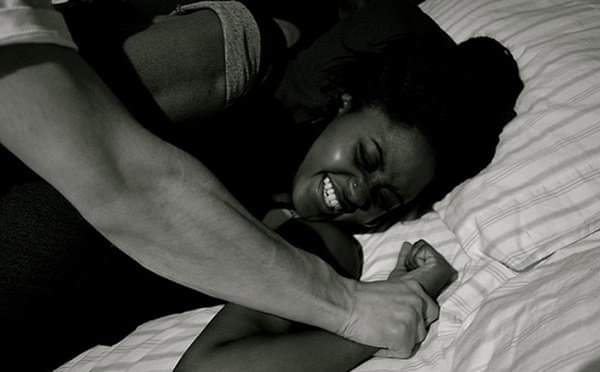
Like corona virus, the incidents of rape in our country, Nigeria, is turning a pandemic, and it is high time the local, state and federal authorities rise up to the challenge.
Hardly any week passes, without a report of a rape incident. Sadly, in recent times, the rapists are no more contented with having unlawful carnal knowledge of their victims; they now go ahead to snuff life out of them.
The recent stealthy murder of Uwaila Omozuwa, an undergraduate of the University of Benin, has left the country numb. Omozuwa was raped and murdered in a church.
As if to rouse the country from the stupor of the bizarre murder of Omozuwa, a teenager, Barakat Bello, a student of Federal College of Animal Health and Production, Ibadan, was cruelly raped and murdered.
There are several other similar cases across the country, and unless the authorities, rise up to the challenge, our misguided youths may begin to treat rape as a fad.
Few days earlier, the commissioner for water resources in Kogi State, Abdumumini Danga, was accused of raping a woman, who sought succour from him, during the lockdown.
The lady, who apparently was running from the scourge of the coronavirus pandemic, may have run into a worse pandemic, allegedly hibernating in the groins of the commissioner.
While the commissioner has denied the allegation, he has not denied having sex with the woman. Perhaps, he will thrust forward later, the usual alibi, of engaging in a consensual sex, should the push come to a shove.
The worst of the worst, in the fast spreading cases of rape, is the rape of minors, by persons who are old enough to be their grandfathers.
In some disgusting instances, it is the biological fathers that rape their children. The madness, for that is what rape can be equated to, has also overtaken the sensibilities of misguided young men, who rape persons old enough to be either their mothers or their grandmothers.
Belabouring in misbegotten cultural and spiritual beliefs, some rapists ascribe the evil, to the quest for psychic powers.
Debating the rape and murder of Omozuwa, in the National Assembly, the members appeared enraged enough, at least on camera.
While some called for an amendment of the laws to gift the evil doers, death sentence as punishment, some others proposed that castration be entrenchment in our laws, as the punishment for rape.
Of note, the state assemblies whose members must buy into any proposed amendment of the punishment for rape, have not been reported to be as aggrieved as their counterparts in the National Assembly.
Perhaps they are, only they do not have the benefit of the klieg-light, like their counterparts in the National Assembly? If they are enraged, as they should, then they must rise up and amend the laws, to ensure that rapists receive the due comeuppance for their sins.
As I am wont to ask, why is it, that while rape cases are on the increase, the numbers of convicted rapists are not rising commensurately.
Of course, the challenge lies with the technical difficulty of proving rape, under the criminal laws, as well as the social stigma associated with being a victim.
So, the enraged lawmakers must portray their angst, by amending the criminal laws, to gift the country and the states, modern laws to protect the dignity of the womanhood.
While rape could be the summit of assault and abuse of the self-worth of a woman, there are lesser degrading, but equally unlawful misconducts against the sanctity of the person of a woman.
There are lesser offences, bothering on sexual harassment, like indecently touching a woman, or saying things that impugn her dignity.
While the debate ranges about what is considered appropriate punishment for the despicable act of rape, the procedural requirement of proof, continues to remain a nightmare for the victims and the prosecutor.
Two of such requirements is to “prove penetration” and the “requirement of corroboration.” One such provision, is section 218 of the criminal code, applicable to many states in the southern Nigeria.
It provides: “any person who has unlawful carnal knowledge of a girl under the age of thirteen years is guilty of a felony, and is liable to imprisonment for life, with or without whipping.”
It further provides: “any person who attempts to have unlawful carnal knowledge of girl under the age of thirteen years is guilty of a felony, and is liable to imprisonment for fourteen years, with or without whipping.”
Regrettably, the section went ahead to make a proviso, that makes a conviction, a tough nut to crack. It provides: “a person cannot be convicted of either of the offences defined in this section upon the uncorroborated testimony of one witness.”
For the offence of rape, regardless of age, the courts have held the requirement of corroboration as sacrosanct. The challenge is that most rape cases don’t have standby corroborators.
So, would a court convict, where there are compelling evidence, even though there may be no corroborator to collaborate? In Iko vs State, (2001) F.W.L.R. part 68, the Supreme Court held: “the purpose of corroboration is not to give validity or credence to evidence which is deficient or suspect or incredible but only to confirm and support that which as evidence is sufficient and satisfactory and credible, and corroborative evidence will only fill its role if itself is completely credible evidence.”
The apex court went ahead to deliver the procedural wedge, in the difficult task of gaining a conviction, for rape. It further held: “in all cases where the law provides that corroboration is necessary, a conviction of an accused can only be valid when there is such corroboration.”
With the recent amendment to the evidence act, allowing for electronic evidence, would the courts accept, a record of the incident of rape, as such corroboration?
Again, would the court accept a scientific proof, as sufficient corroboration, where for instance, remnants of semen are recovered and confirmed as belonging to the accused person? Where there are torn cloths, especially underwear, acts of physical violence, and other circumstantial evidence, should that not enable a conviction, without seeking the corroboration, as determined by the Supreme Court in Iko vs State, supra? With rape assuming a pandemic proportion, is it not time for a national movement, to gift the country and states, a more modern criminal laws on the arching acts of rape?
The charged atmosphere arising from the despicable rape and murder of Uwaila Omozuwa, should be a stepping stone to change the legal paradigm.
But, what do we do with the laggard states that cannot even enact the Child Rights law to protect children who are victims of rape?












